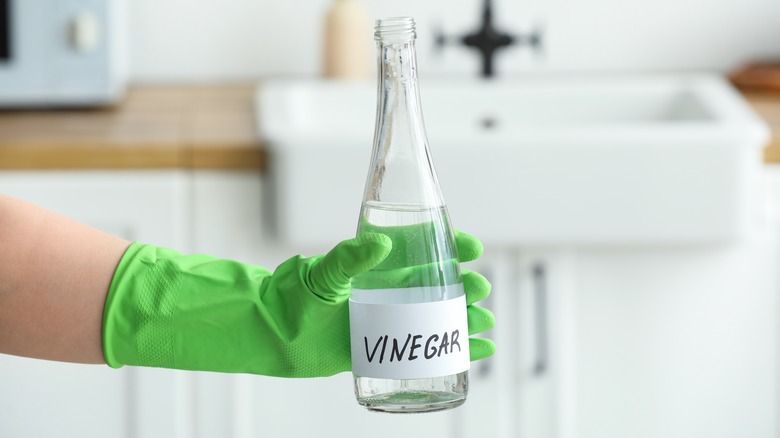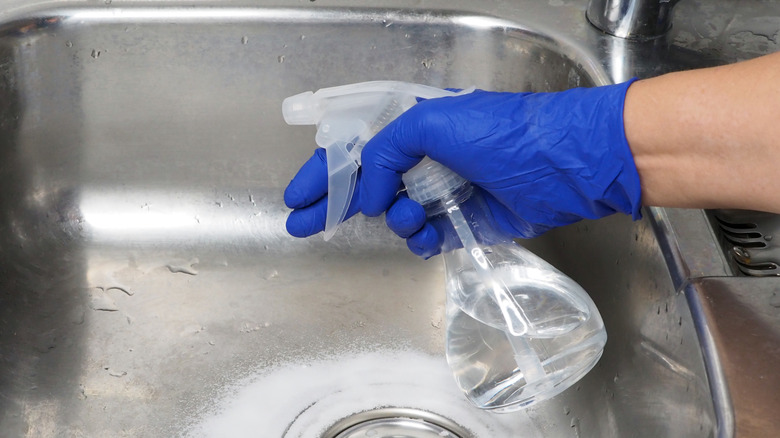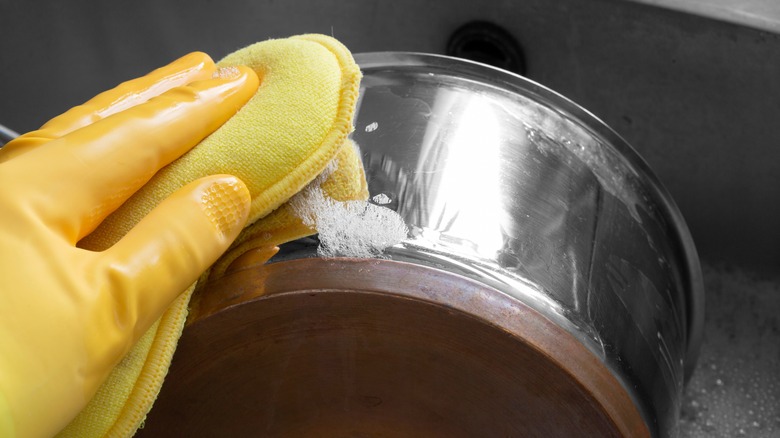Think Carefully About Using Vinegar To Clean These Metal Surfaces
Vinegar is a versatile cleaning tool that homeowners use on various surfaces. It is more affordable than many traditional cleaning products and does not emit strong fumes like harsher chemicals. These benefits make vinegar a great alternative cleaning ingredient. Although it is really useful in many instances, there are still a few materials that it should not be used on. In particular, avoid allowing vinegar to sit on copper, aluminum, or steel.
While it would be nice to be able to use the cleaning ingredient on these metals without a second thought, it will unfortunately lead to damage after prolonged exposure. You probably have metal throughout your home that you may be tempted to spray with white vinegar. This might include utensils, cookware, decor, appliances, and more. If so, you should know that you need to be careful when removing dirt and grime from this material. For those who are already in the habit of using vinegar to remove rust, just make sure that it does not remain on metal surfaces for long periods of time.
How vinegar damages metal surfaces
Vinegar damages some metal surfaces over time by corroding them. This includes aluminum and steel. Metal corrosion occurs when the material is damaged due to being exposed to an incompatible environment. Metals that contain iron may even become susceptible to rust after coming into contact with vinegar. You will have to watch out for rust when it comes to iron, cast iron, and steel. As for copper, vinegar can cause etching in the metal's surface if it sits for too long.
Although you should not leave vinegar on certain metal surfaces for extended periods of time, it can be used to safely remove certain stains as long as it only comes into contact with the material briefly. For example, a vinegar and water solution is commonly used to clean oxidized aluminum. For this hack, simply boil two tablespoons of vinegar in four cups of water for 15 minutes. After the liquid has cooled, you can use it to restore oxidized aluminum around your home. Just make sure to clean the mixture off of the metal and dry it promptly.
Clean metal surfaces safely
If you do not want to have to worry about vinegar damaging the metal items around your home, you have a few options. You can either use a safer cleaning product, or ensure that you incorporate vinegar in a way that will not harm your belongings. For copper, you can clean it with a lemon and salt. Simply cut the lemon in half and use it like a sponge to rub the salt across any stains. Clean the residue off of the material and dry it completely once finished. This should get your copper sparkling again without causing damage.
One of the best ways to clean aluminum is with a mixture of one part water and one part vinegar. However, be sure to clean off the residue and dry the material to prevent corrosion. You can also simply use mild dish soap to clean aluminum. For stainless steel, consider using a paste made of baking soda and water to tackle stubborn stains. You can also use mild dish soap for routine stainless steel cleaning. As with the other cleaning methods, remove any residue from with a damp cloth and dry the surface completely.


